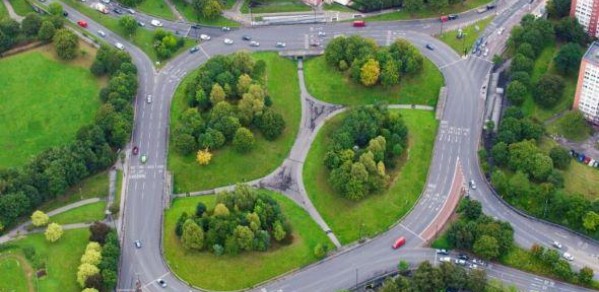
A new national research hub will help to upgrade and decarbonise the UK’s complex and interconnected national, regional and local transport infrastructures.
I am delighted that the University of Cambridge, including several colleagues from the CSIC, will be playing a leading role in this exciting initiative. We are looking forward to collaborating with our colleagues in the universities of Newcastle, Glasgow, and Heriot Watt, and working with the transport sector. This is a unique opportunity to create the transformation pathways that will deliver a resilient, net zero transport system fit for 2050 and beyond.
Dr Jennifer Schooling, Director CSIC
Transport is the largest contributor to UK domestic greenhouse gas emissions, but it is also the engine of economic growth.
To meet net zero emissions by 2050 and protect our economy, it is crucial that our transport infrastructure evolves to meet the challenges of climate change, such as flooding and extreme heat.
A net zero future for transport
The new Research Hub for Decarbonised Adaptable and Resilient Transport Infrastructures (DARe) will identify pathways and solutions for delivering a resilient, net zero transport system that works for people and communities. Led by Newcastle University, the Research Hub includes partner institutions such as the universities of Cambridge, Glasgow, and Heriot-Watt.
It will host world-leading researchers who will provide expertise, modelling and data tailored to each area and each transport challenge.
Funding of £10 million has been awarded by the Department for Transport National Highways, HS2 Ltd, Network Rail and UK Research and Innovation (UKRI), the UK government funder of research.
Dr Jennifer Schooling, the director of the Cambridge Centre for Smart Infrastructure and Construction (CSIC) at the University of Cambridge, is the PI/co-director of the award alongside Professor Abir Al-Tabbaa, Professor Ajith Parlikad, Dr Kristen MacAskill (Department of Engineering), Dr Li Wan from (Department of Land Economy), Professor James Woodcock (Med School), and Professor Ying Jin (Department of Architecture).
The primary goal of the Research Hub is to aid in the decarbonisation of the UK's complex and interconnected transport infrastructures. By providing expertise, modelling, and data tailored to each area and each transport challenge, it will identify solutions for delivering a resilient, net zero transport system that aligns with the needs of people and communities.
Sharing knowledge and expertise is at the heart of the Research Hub, which will engage widely to bring together leading academics from across the UK and their civic and industry partners. The Research Hub will also serve as a national facility where researchers launch an open-source platform, opening data to policymakers, local authorities, and the frontline of transport systems.
Jennifer Schooling, CSIC director said: ‘I am delighted that the University of Cambridge, including several colleagues from CSIC, will be playing a leading role in this exciting initiative. We are looking forward to collaborating with our colleagues in the universities of Newcastle, Glasgow, and Heriot Watt, and working with the transport sector. This is a unique opportunity to create the transformation pathways that will deliver a resilient, net zero transport system fit for 2050 and beyond.’

